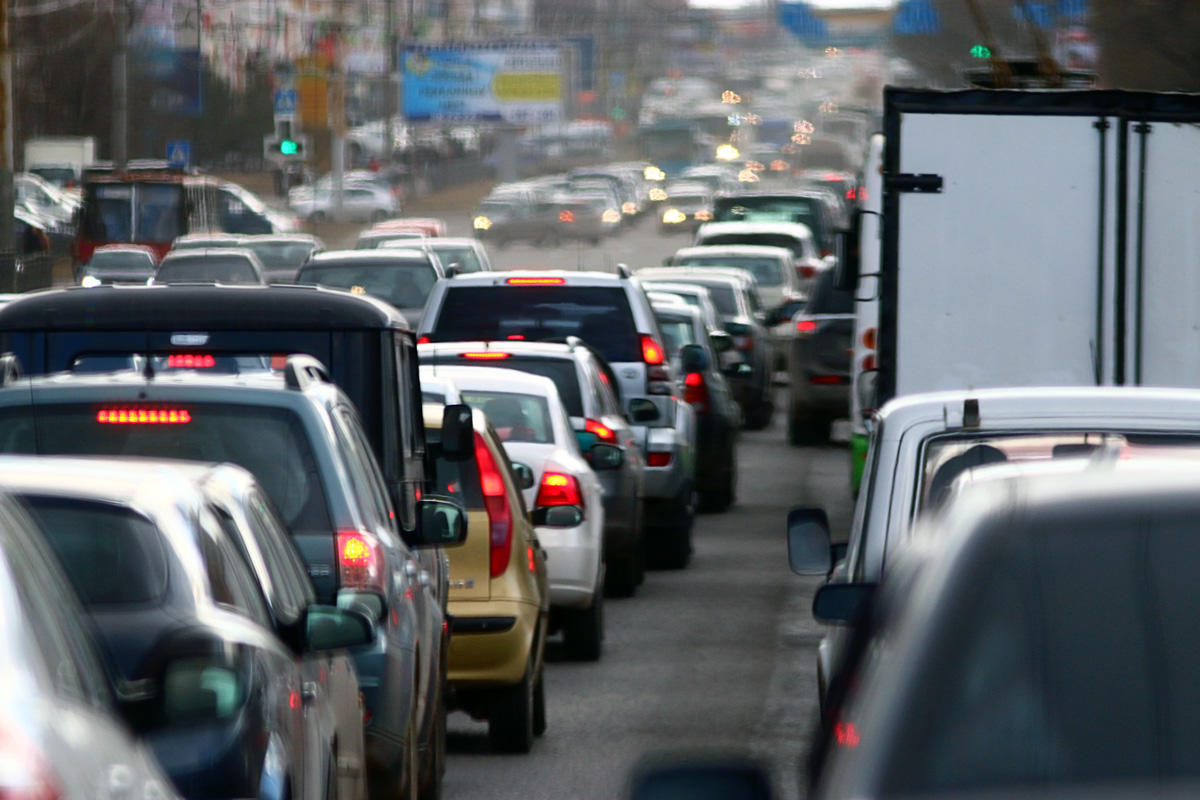LAU Provides Expertise on Traffic in Lebanon
SOE’s Dr. John El Khoury talks traffic problems and solutions.
Traffic congestion is present everywhere, no matter the country. However, it is an especially complex problem in Lebanon as it is influenced by numerous factors. In a recent interview on the LBCI show Naharkom Saeed, Associate Professor of Civil Engineering John El Khoury, who has done extensive research on traffic congestion and is part of Lebanon’s Traffic Management Center, spoke about the issue and possible ways to resolve it.
El Khoury first highlighted the great number of cars and trucks on Lebanon’s roads as a main contributor to the prevalence of traffic congestion and accidents. Lebanon’s roads, highways and thoroughfares see 1,800,000 officially registered vehicles, which is one of the highest rates in the world relative to population. This might render ineffective the efforts of the Internal Security Forces, who are charged with road safety, as there are not enough personnel to monitor all the cars and trucks.
Another factor is the fragile public transportation system in Lebanon, which is neither organized, clean, civil nor particularly safe. Most of the 120,000 people who commute to Beirut each day through the northern entrance prefer not to use public transport, El Khoury told the show’s host.
Moreover, a string of violations take place every day, mostly by operators of trucks, many of whom are not Lebanese and do not have licenses to operate such vehicles in the country. “The government is doing its best to reduce law violations and ensure road safety,” El Khoury said, “but more should be done.”
For instance, and while the drivers responsible for two recent truck accidents that made the news in Lebanon were foreign, the truck owners were Lebanese. “The fine for such a violation is only 200,000 LL,” said El Khoury. “The owners would pay the ticket and close the case without the drivers actually being prosecuted.”
The problem is compounded by the lack of streetlights and road markings as well as the poor infrastructure of most roads in Lebanon. “Urban planning and road infrastructure did not develop in parallel with the country’s development and population growth,” he noted.
All of this, however, is not caused by the absence of laws. “Lebanese traffic law is good enough, but we have to make more of an effort to ensure that it is being properly enforced,” he said.
The good news, according to El Khoury, is that much can be done. First, it is important to provide deterrents to drivers, such as sharing driving records with insurance companies and increasing traffic fines. Moreover, the Internal Security Forces must develop a highway patrol unit such as that in the United States, which is responsible solely for regulating road traffic. Driving hours for commercial drivers should not exceed five hours a day. And finally, more research and planning should be done, especially in Beirut. “Most big cities in the world use a transportation planning model to simulate urban growth and identify weak links in the highway network before implementing any construction project,” El Khoury explained.
The traffic and transportation expert noted that people’s frustration and anger play a huge role in road rage and incidents. Therefore, it is up to Lebanese citizens to look at driving from a different perspective. “Driving is influenced by the culture, and it requires awareness that must start in schools. It is indeed a huge responsibility because a car can become a murder weapon.”
